Intellectual Life at YK Pao High School is thriving and we wanted a way to commemorate it, so we started the Intellectual Challenge.
Our students are inquisitive and curious, and these awards were a perfect way to feed and reward this curiosity.
——Jordan Anderson
High School Director of Teaching and Learning
Recently, at the High School, students were encouraged to broaden their learning horizons with the inaugural Intellectual Challenge. The challenge stretches across eleven subject areas, each with their own individual project such as a speech, piece of art, or experiment. This allowed the students to dive into more complex topics in their particular areas of interest, while developing high-level skills and knowledge. Importantly, the challenge gave the students broad prompts, allowing them to conduct advanced self-chosen and self-guided projects.
The challenge was optional for students, they could choose to take part in many or none at all. However, showing the intellectual atmosphere on campus, the challenge saw high participation. In particular, the students were excited for a chance to gain new experiences that would challenge and hone their abilities. Throughout the challenge, teachers provided support to the students, through giving special educational sessions, one-on-one guidance, feedback and specialist resources to complete the projects.
Earlier this semester the students’ success was recognised and awards were given to the winners at a special ceremony. We spoke to some of the Intellectual Challenge winners, below, to find out what they did and their reflections on the experience:
Chemistry
Winner – Peter (Y10)
Chemistry students were given a open prompt: create a “magic-like” chemical reaction. Peter, the winner, created a video and carried out the Belousov-Zhabotinsky reaction – an example of non-equilibrium thermodynamics. The reaction results in the chemicals cycling through a continuous chemical reaction until they are depleted, producing a vibrant and beautiful ring-like pattern. Peter used the opportunity to experiment with different variations of the reaction, which in turn produced an impressive showcase of the effect of chemical concentration on the rate of reaction. The Intellectual Challenge is also very different to what students usually do in class. During the process, Peter often had to calculate challenging equations. Besides this, he also spent much of the time driving the project forward himself: “This made it much more challenging for me and helped me become a more independent scholar.”

Peter originally chose the project as he was eager to try out the experiment after reading about it, and also thought it would be a suitable challenge for the task at hand. Dr. Hinselwood, chemistry teacher at Songjiang, explains that Peter eventually won the challenge not only because the reaction required a strong knowledge of equilibriums, but also because he did so with minimal supervision and was able to explain his work well.

“What makes the Intellectual Challenge great is the sheer amount of support the school has offered to each individual student and the openness of the challenge. ”
——Peter, Y10
Art
Winner: Eric (Y12)
Art students looked to the past for their challenge, which was themed “Folklores and Traditions”. As part of the challenge, the students were asked to use 2D media to capture a folklore or tradition being lost due to the fast advancement of technology and society. Eric, the winner of the Art Challenge, created a diptych mono-print of a Chinese Buddhism temple inspired by a trip to Hanshan temple in Suzhou. He created the drawing using negative spaces to elicit a traditional Chinese aesthetic, saying “the achromatic nature of the forms embody the traditional value of Zen – emptiness is color.”
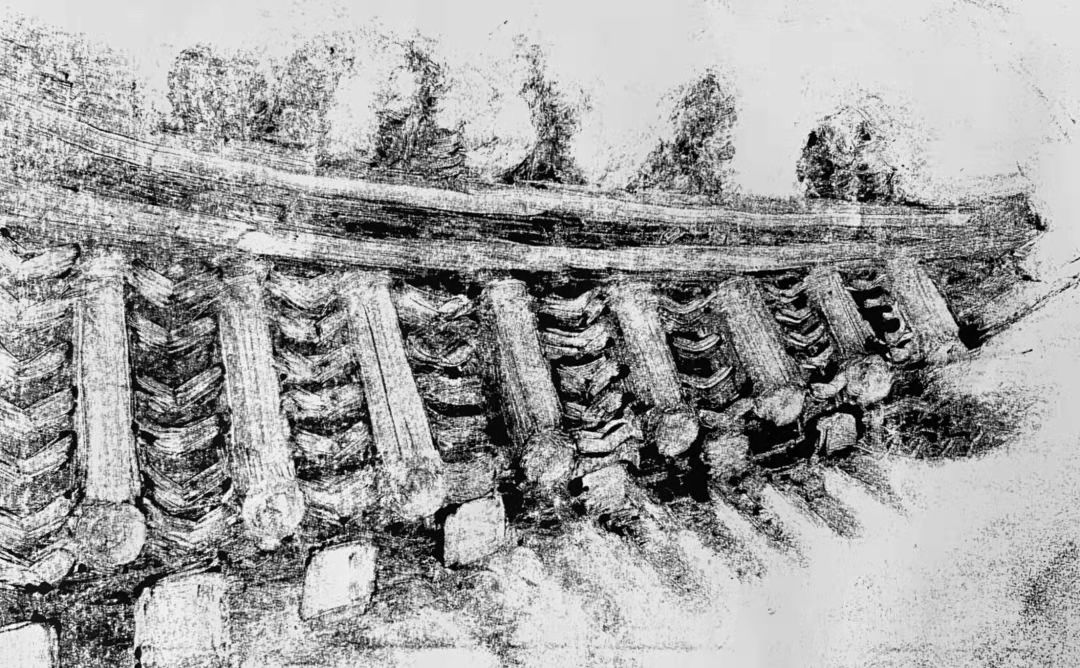
“I grew up in a metropolitan city and live in a fast-paced lifestyle every day. However, as I was walking in the temple and saw the monks chanting and travelers praying, suddenly I felt a sense of tranquility, which made me lose track of time. I created this print making to convey my nostalgia for the slow-paced lifestyle of my childhood and Buddhism values diminishing in the persistent movement of time.”
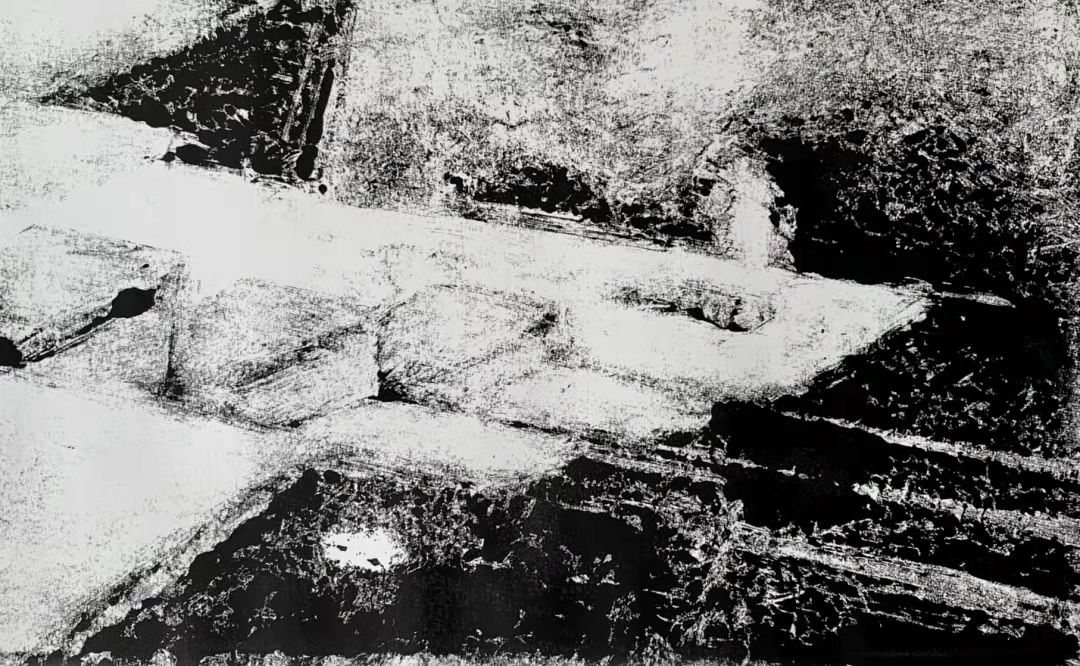
Eric, who has been at Pao School since Year 8, enjoys art as he “always feels peaceful and focused” when he is producing artwork. For him, it is a way to deliver a message more than just visually pleasing images. Importantly, it allows him to expand his mind – rather than merely answering questions, it is a subject that generates questions and thought. In his pieces, he is influenced by the work of other artists and the methods they have used to create pieces. For example, he recently created a mixed media piece influenced by the Japanese Ukiyo-e print The Great Wave made by Katsushika Hokusai in the Edo period.
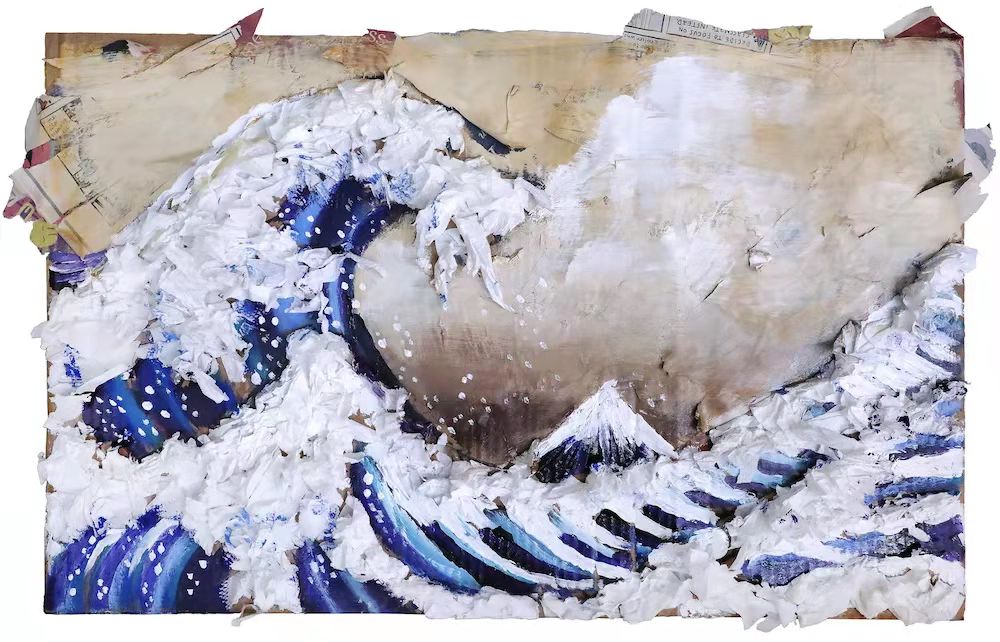
Environmental Science Challenge
Winners: Arwen and Eve (Y10)
In class, Environmental Science students study environmental systems and cultural, economic, political, ethical and social interactions of societies with the environment. For the challenge they were therefore tasked with developing a solution to a global problem.
Arwen and Eve, who worked as a team for the challenge, chose to complete a project focusing on water scarcity. For the challenge, each chose to live off a bucket of water for a day and shot a video about the experience. They chose this amount to reflect the amount of water a Sub-Saharan African woman or child lifts to provide their family with basic water necessities. Through the project, the pair wanted to experience a challenge faced by Sub-Saharan Africans, show their privilege, and raise awareness of water scarcity. Throughout the project, they faced challenges when they encountered situations where they would usually use taps, but no longer had access to this water. Now, though the challenge has finished, they are more mindful of their water consumption and have changed their habists, such as no more long showers, to save water.
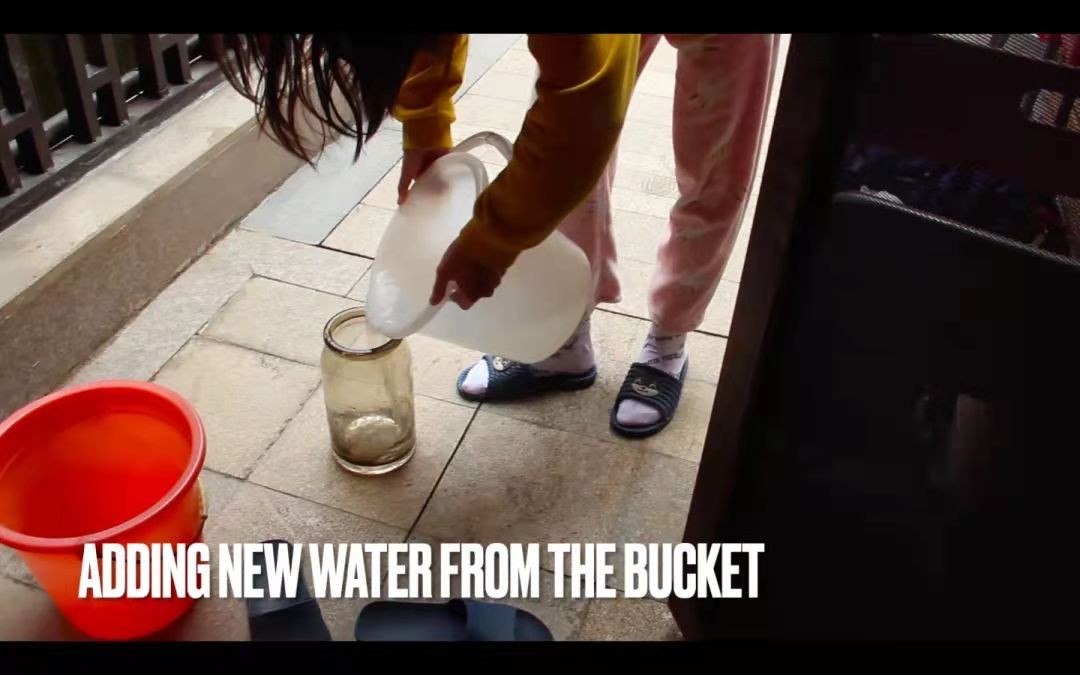
Ms. Holmes, Environmental Sciences teacher at SJ, felt that the project was an informative and thoughtful way to demonstrate an understanding of the circumstances of others. The video project was also a useful method to share the challenges faced by those in water scarce regions with a wider audience. “The video was well done with research-based information for a pleasant, yet informative viewing experience,” says Ms. Holmes.
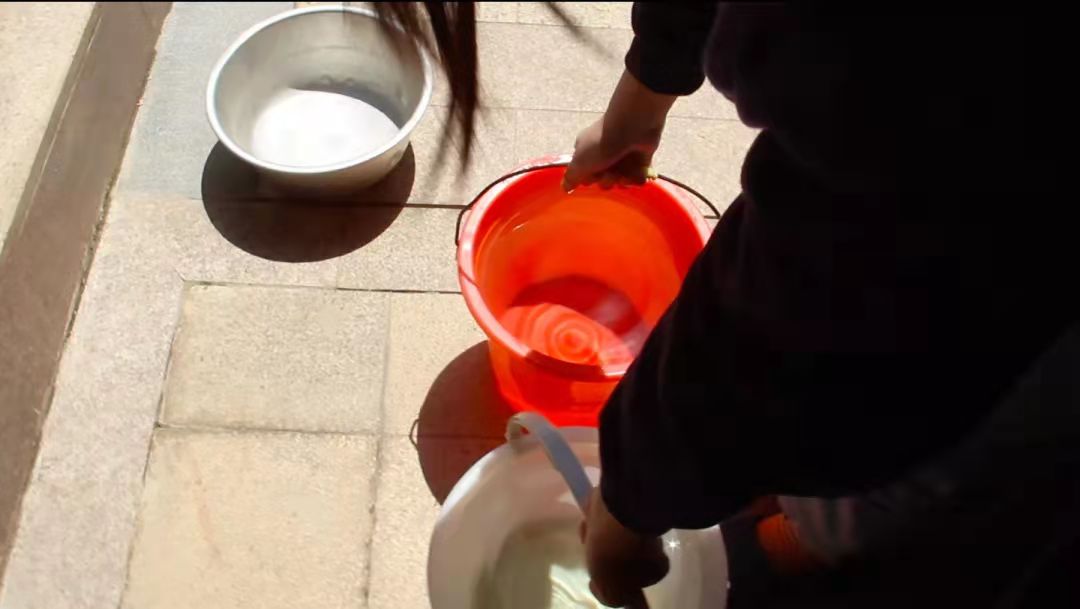
“We didn't perfectly relive the whole experience of a person living in a water-deprived area. There were numerous times when we wanted to give up or accidentally turned on a tap. The experience really reminded us of how privileged we are. The real solution to this problem is to start saving water as individuals, it's the only thing we can really do.”
——Arwen, Y10
Many thanks to the Intellectual Challenge winners and teachers who have contributed to this article.